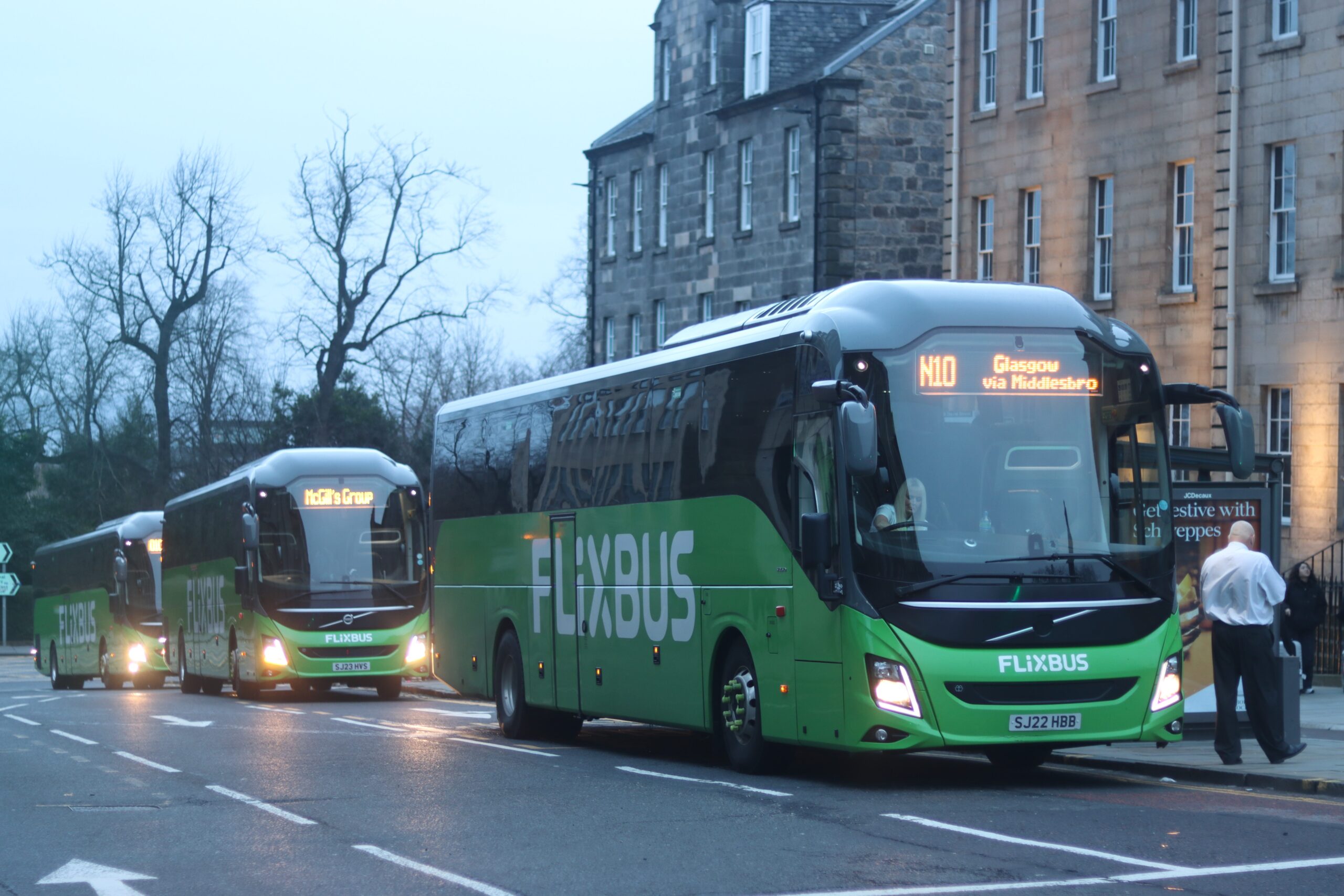The Impact of megabus’ Retreat on UK Coach Travel

On 4 December 2024, megabus cut the majority of its coach services in England and Wales due to “low passenger demand.” From this date, the company ceased most of its operations, leading to the withdrawal of 15 routes across these regions. megabus now focuses solely on operations in Scotland, cross-border routes linking Scotland with England and Wales, and the Falcon service connecting Plymouth and Bristol.
This decision has reduced options for passengers seeking affordable long-distance travel: a blow that may be particularly heavy due to the rising price of rail travel, alongside ongoing reliability concerns with train services due to strikes and service disruptions.
A megabus service in London
© Megabus
For many, coach travel remains the preferred or most cost-effective way of travelling, and passengers are instead using services run by megabus’ competitors such as National Express and FlixBus. However, with choice and competition reduced, concerns have arisen about rising costs of tickets for passengers.
CheckMyBus, which compares prices and schedules for booking coach tickets online, has produced data highlighting an increase in ticket prices on key routes during 2024. Compared to 2023, many ticket prices rose, with some doing so before the megabus service reduction. Following megabus’ announcement, a sharp increase was then observed. This suggests that the service reduction reduced competition and the remaining operators were able to charge more due to passenger demand.



Notably, despite this December increase, CheckMyBus’ data observed less of a discrepancy in January, with lasting competition between the remaining players likely helping to stabilise fares.
Marc Hofmann, CEO at CheckMyBus said:
While we have seen temporary noticeable uplifts in December, prices already decreased in January. With National Express and FlixBus, two strong and professional players will keep the market competitive along with local players on specific routes. For this reason, we don’t expect significant price uplifts in 2025 vs 2024 and the price benefit of bus compared to train will remain strong.
Despite this optimism, megabus’ retreat arguably highlights broader challenges facing the UK coach industry, including fluctuating passenger numbers, rising operational costs, and an increased use of car travel.
megabus’ decision suggests that demand for long-distance coach services in England and Wales has not recovered as expected following the pandemic, leading to difficult business choices. megabus’ retreat could thus foresee a trend where operators streamline services to focus on their most profitable routes.
However, National Express currently continues to operate a widespread network, while FlixBus is rapidly expanding its service offerings, partnering with local operators to connect destinations across the UK.

FlixBus commenced its UK operations on 2 July 2020, introducing domestic services connecting London with cities such as Birmingham, Bristol, Guildford, and Portsmouth. Since then, the company has experienced significant growth through strategic partnerships and network expansions.
Notably, in November 2024, a five-year partnership with First Bus was announced, which will deploy new vehicles on new and expanded routes. Alongside this partnership, FlixBus also announced plans to double its UK network by the end of summer 2025, aiming to operate over 200 vehicles with various partners.
In contrast to megabus’ withdrawal, this expansion suggests that FlixBus is flourishing in the UK’s intercity coach market, operating on a business model that leverages partnerships with local operators.
Andreas Schorling, FlixBus UK MD said:
This feels like a new golden age for coach travel. Over five million UK passengers have travelled with us since we launched three years ago and they keep coming back. By summer, we’ll have over 200 vehicles on the road, more than twice the size of the megabus network at their peak.
2025 is set to be a record-breaking year of growth for FlixBus across the UK. High-profile partners such as First Bus and trentbarton will be coming on board, as well as expansions with existing operator partners. We anticipate extraordinary levels of passenger demand as we bring our affordable, reliable, and sustainable services to more cities than ever before, driving us towards market leadership.
Overall, megabus’ withdrawal from much of England and Wales is significant for the UK’s coach travel landscape. While the loss of services has reduced options for passengers, competitors like National Express and FlixBus remain present to meet demand. With FlixBus continuing to expand, the intercity coach market remains dynamic, offering hope that affordable and reliable travel will remain accessible for passengers across the UK.
This article was originally published in the Bus-News magazine.
Tags
Related
Calls for over 60 free bus travel update from Department…
Calls for free bus travel for those over the age of 60 in England is gaining more attention after an increase of support. Unlike those in Wales, Scotland, and N
Major UK train station is one of the worst places…
Pickpockets are a problem across the UK, but one place is the worst for having your belongings stolen. According to the British Transport Police (BTP), just und
UK Snow Travel Chaos: Kent, East Sussex, West Sussex, Hampshire,…
UK Snow Travel Chaos: Kent, East Sussex, West Sussex, Hampshire, Wiltshire, Surrey, Berkshire, Greater London, Essex, Suffolk, Hertfordshire,
‘Only travel if necessary’ warning as UK’s busiest motorway shut…
NATIONAL Highways have issued an urgent warning to drivers as one the UK's biggest motorways shuts for the weekend. They has urged drivers to re-plan their rou











